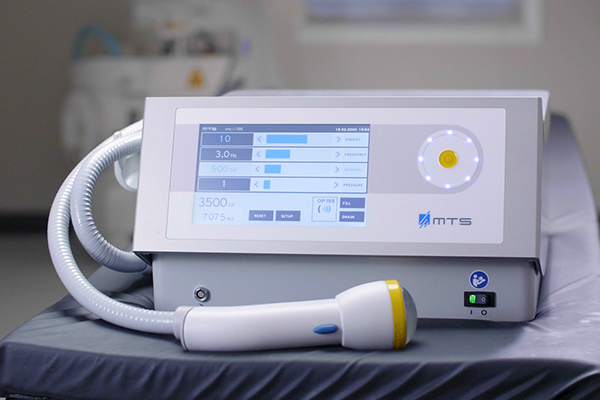Can Cortisone Shots Be Used Before, During, or After SoftWave Treatments?
Cortisone shots and SoftWave therapy are two different types of treatments that can be used to manage various musculoskeletal conditions. While both treatments have their unique benefits, waiting for three to six weeks to get SoftWave therapy after cortisone shots is generally advised. Let’s see why.
New Patient Special
Try SoftWave for just $69 at a clinic near you and learn if you’re a candidate for full treatment

Cortisone Shots and SoftWave Therapy: Where Are They Used?
Cortisone shots and SoftWave therapy are both used in different ways to treat a range of musculoskeletal conditions. Cortisone is a steroid medication that can be injected directly into joints or tissues to reduce inflammation and relieve pain. SoftWave therapy, on the other hand, is a non-invasive treatment that uses high-frequency sound waves to promote healing in damaged tissues, meaning it does not involve any needles or incisions, and it is generally painless.
While cortisone and SoftWave therapy are different in their approach, they share some similarities. Both can be used to treat conditions such as tendonitis, bursitis, and arthritis, among others.
Can You Use SoftWave Therapy Along With Cortisone Shots?
The answer to this question is not straightforward. While both cortisone shots and SoftWave therapy can be used to manage similar conditions, they have different mechanisms of action.
Cortisone works by reducing inflammation and pain by suppressing the immune system’s response, while SoftWave therapy promotes healing and regeneration by stimulating the body’s natural healing process. When using both procedures simultaneously, cortisone may alter the body’s natural response to injury, which may affect the healing process stimulated by SoftWave.
In some cases, SoftWave therapy may be recommended as an alternative or complementary treatment to cortisone shots. However, it is essential to consult your healthcare provider before using both treatments together.
I Just Had a Cortisone Shot. How Long Do I Need to Wait Before Getting SoftWave?
If you have recently had a cortisone shot, it is important to wait at least three to six weeks until the local anesthetic has worn off and any significant pain or swelling at the injection site has resolved before receiving SoftWave therapy.
Your healthcare provider may also recommend waiting a few days to a week after a cortisone shot before receiving SoftWave therapy to ensure that the injection site has had time to heal and any potential side effects have worn off.
Can You Get A Cortisone Shot After SoftWave Treatment?
In general, there is no medical reason why someone could not receive a cortisone shot after SoftWave treatment. However, your doctor may recommend waiting a certain period of time after SoftWave treatment before getting the cortisone shot to allow your body to fully respond to the SoftWave treatment.
Ultimately, the decision to receive a cortisone shot after SoftWave treatment should be made in consultation with your healthcare provider, as they can provide the most personalized and tailored advice based on your individual health status and treatment history. That being said
Planning to Have SoftWave Treatment? Find A Provider Near You!
SoftWave therapy is a safe and effective treatment option for various musculoskeletal conditions. It is a particularly effective treatment for chronic conditions that have not responded to other treatments or for patients who are looking for a non-invasive alternative to surgery. If you are interested in SoftWave therapy, our professional healthcare partners will work with you to develop a personalized Softwave treatment plan that meets your specific needs and goals.
Find a SoftWave provider near you today!
Disclaimer: The information provided in this blog is for educational and informational purposes only and is not intended as a substitute for professional medical advice, diagnosis, or treatment. The content provided in this blog should not be used to diagnose or treat any health problems or illnesses. Always consult with a qualified healthcare professional before making any changes to your healthcare routine or treatment plan.
Looking Beyond Cortisone Shots?
Discover long-term relief with SoftWave Therapy. Start with your first session for only $69.





